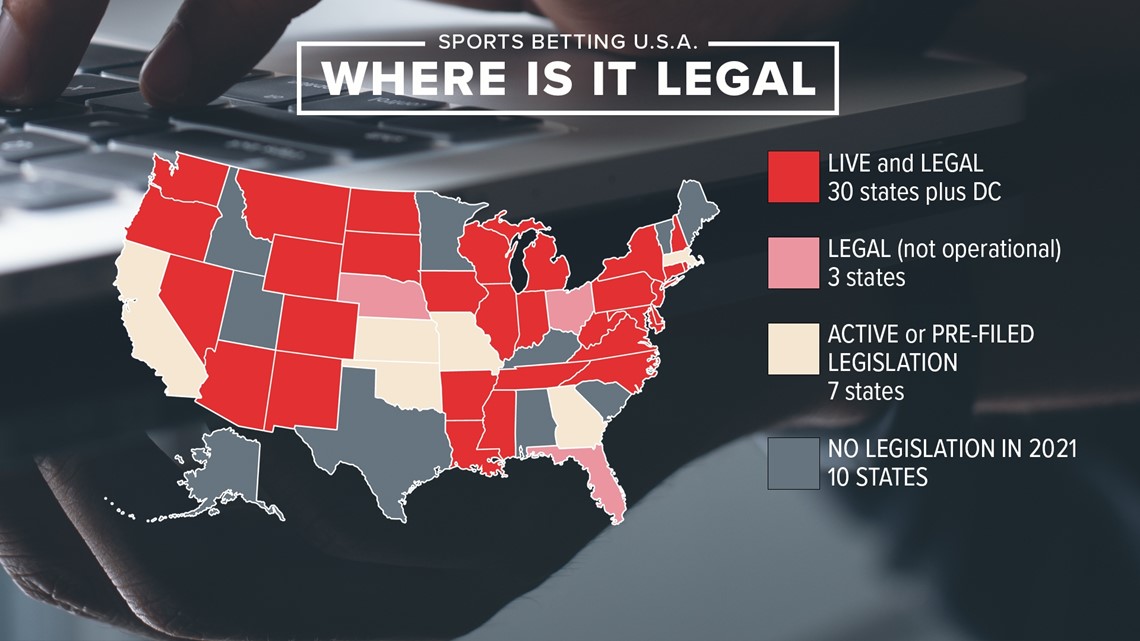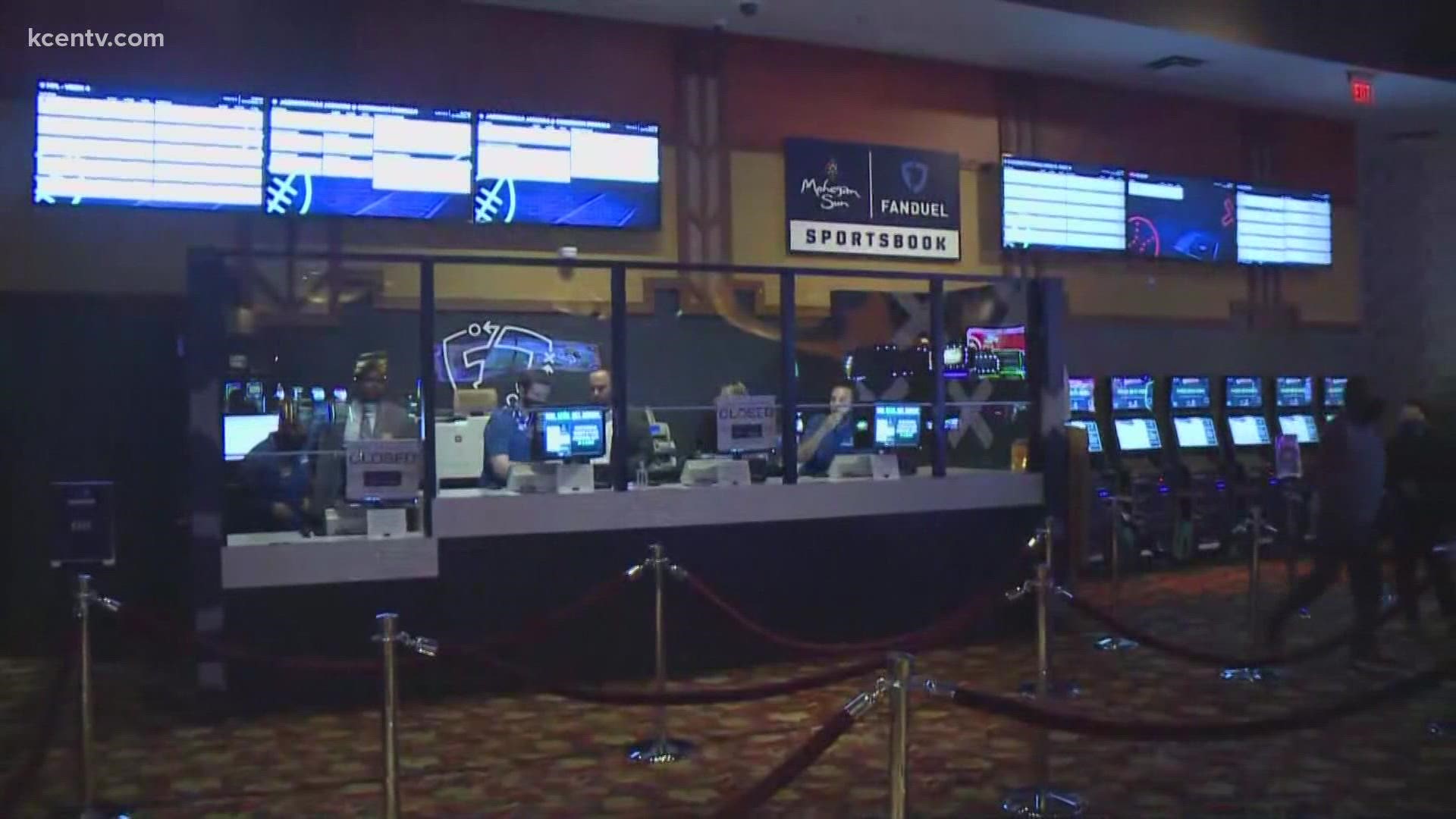WACO, Texas — It was projected that more than 31 million Americans would bet on Super Bowl 56, according to the American Gaming Association. In total, an estimated $7.6 billion was on the line during the big game.
With 30 states and Washington D.C. having legal and live betting, and another three who have legalized it, it may only be a matter of time before Texas joins the ranks.
Ben Fawkes, the vice president of digital content for the Vegas Stats and Information Network (VSIN) says betting has always been popular, just not legal.
“I think what we’ve seen is there always was an audience for it, there just wasn’t the public acceptance for that," he said.
Fawkes says that mobile betting sites like FanDuel Sportsbook and DraftKings Sportsbook have made it easy for betting to go live in many states, even if there isn't a large casino presence.
"Generally it could be tied to a land based casino, and so a lot of times casinos get the right to distribute online or mobile licenses."
That means that as long as a casino exists and gambling is legal, the mobile betting market is ripe.
New York, a state where physical gambling has been legal since 2019, activated mobile betting in January. In their first month, they shattered records with $1.6 billion wagered through mobile sports betting sites, according to a report from the New York State Gaming Commission.
From that money wagered, the state will bring in nearly $58 million with a 51 percent tax rate of the revenue generated that month.
Texas would certainly be in line to have paydays similar to that.
“Texas would be right up there," Fakwes said. "It would be in the top three for sure and then probably 1 or 2 depending on adoption but its such a massive population base, it’s gonna be one of the biggest markets."


Arizona's sports gambling market went live in September 2021. According to the website legalsportshandle.com, the state has generated
$118,981,007 in revenue. The taxes paid on that money has already surpassed $4.2 million due to a smaller tax rate than New York.
Arizona's population is nearly 22 million less than that of Texas.
Fawkes says it really just boils down to one thing.
“I guess overall the difference with how sports betting works in different states, I’d sum it up in one word: politics”
Patrick Svitek is a political correspondent for the Texas Tribune. He reported that in 2021, a Nevada-based casino company named Las Vegas Sands was trying to land special casino licenses for four "destination resorts" in the four biggest cities in Texas as part of House Bill 131.
The idea was shut down. Lieutenant Governor Dan Patrick went as far to say that sports gambling was not going to see the light of day that season.
Svitek reported that Las Vegas Sands has spent millions of dollars to hire dozens of lobbyists this session, hoping to persuade a Legislature that has been reluctant to expand gambling options in the past.
The reporter told 6 News that Las Vegas Sands isn't giving up and they have their eyes on lobbying for the next legislative session in 2023.
“Las Vegas Sands created a Texas based political action committee in early January signaling that they want to be involved in elections here," Svitek said. "It’s a sign that they are still committed to Texas, still committed to building support here.”
If lobbyists go about it the right way, Svitek believes there could be some momentum for politicians and lawmakers to get behind sports gambling.
“The first step is education, and the second step is getting people who are educated about it, excited about it and fighting for it in the legislature.”
In 2021, the Dallas Morning News and University of Texas at Tyler conducted a survey, saying "57% of Texans support allowing casino gambling in the Lone Star State. Only 29% of respondents are opposed, with 13% saying it doesn’t matter. Of that total, 52% of white evangelicals, a group that routinely blocks the expansion of gambling, are in favor of allowing casinos in Texas."
If sports gambling was to pass through the 2023 legislative session, it would then be placed on voter's ballots months later.

